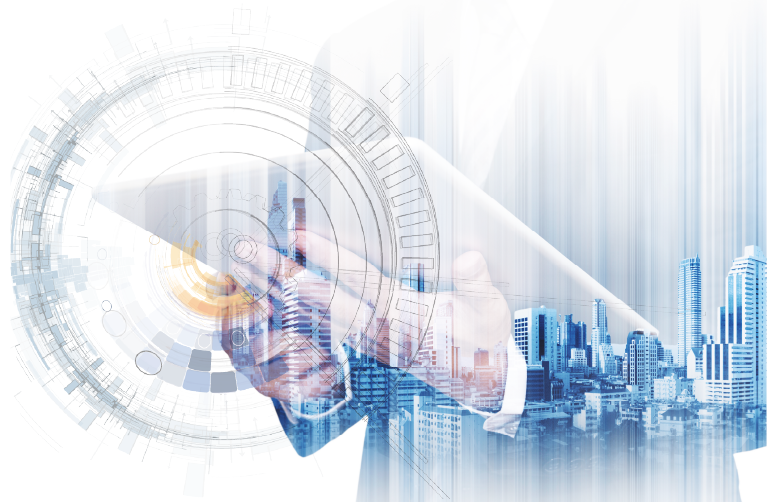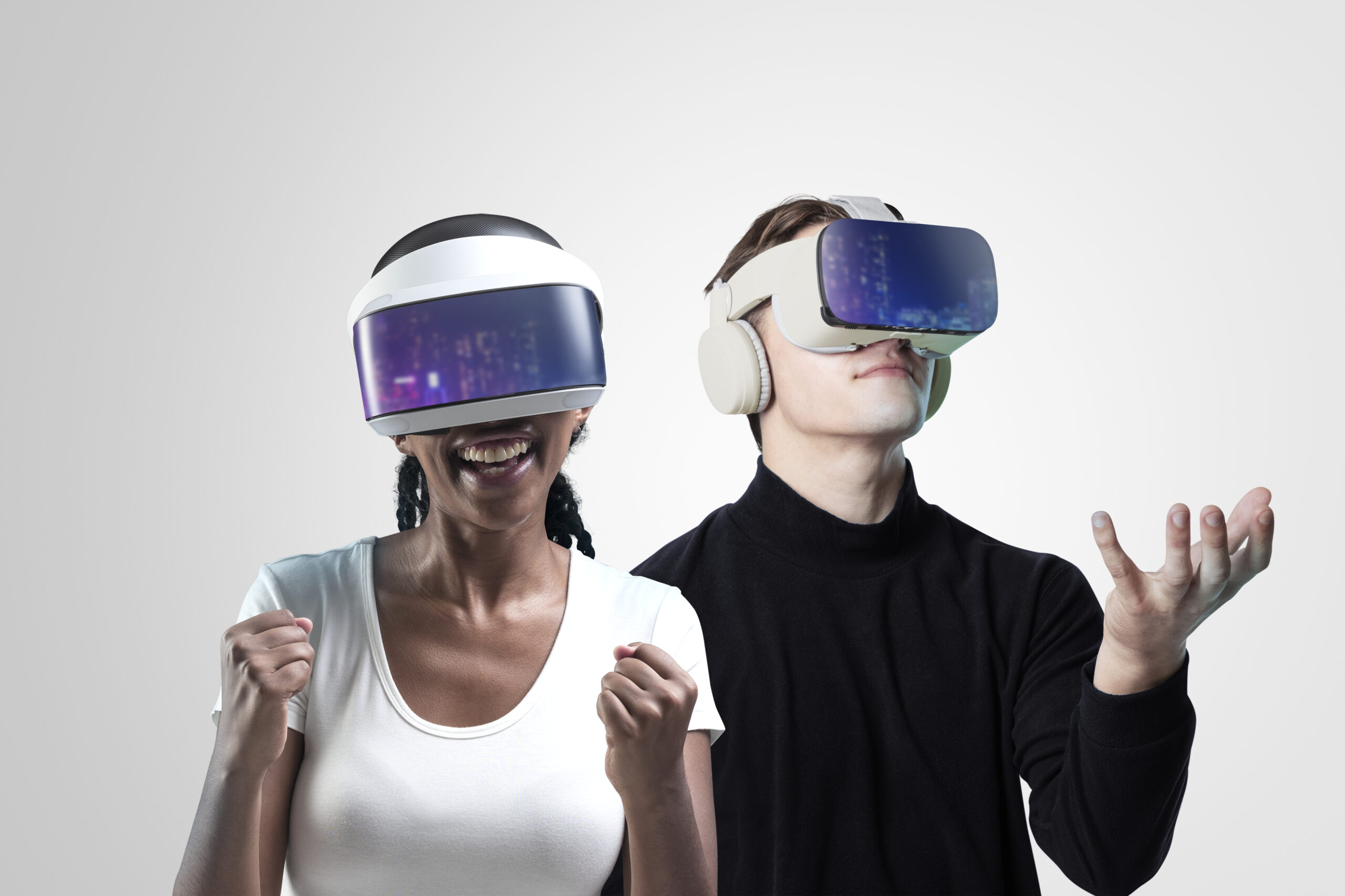In Brief
- Metaverse Concept: The metaverse, spurred by advancements in virtual and augmented reality, is blurring the lines between physical and digital spaces, promising revolutionary shifts in work, communication, and entertainment by enabling virtual offices and real-time remote collaboration.
- Avatar Utilization: The creation and customization of avatars in the metaverse will redefine interactions in virtual spaces, extending beyond workplaces to personal and even medical engagements, opening doors to novel forms of communication and representation.
- Data Privacy Concerns: As the metaverse evolves, critical issues around data collection, security, identity theft, and lack of transparency arise, necessitating clear guidelines and responsible practices to ensure user privacy and trust in this burgeoning digital realm.
The concept of the metaverse has been gaining traction in recent years, as the line between physical and digital spaces continues to blur. With the rise of technologies such as virtual and augmented reality, the potential implications for the future of work are vast and exciting.
From the ability to collaborate with remote colleagues in virtual spaces to the emergence of new forms of communication and entertainment, the metaverse promises to revolutionize the way we work and play.
As we explore the possibilities of this new digital world, it’s important to consider what the future of work might look like in a metaverse-enabled world. Could virtual offices become the norm? Will we use avatars to represent ourselves in the workplace? How will data privacy be managed? By considering these questions, we can begin to envision the future of work in an increasingly digital world.
What is the metaverse?
The term “metaverse” comes from a combination of “meta” (meaning “beyond”) and “universe.” The metaverse is an internet-based virtual world that can be accessed using VR and AR headsets, or even through smartphones. Although the idea of the metaverse may seem futuristic, we’re actually on the cusp of its arrival. With the recent advancements in VR and AR technology, the metaverse is within reach.
The potential implications of the metaverse for the future of work
One of the most exciting implications of the metaverse is the potential for virtual offices and remote collaboration. With virtual reality and AR technology, it will be possible to virtually transport yourself and your colleagues to a new location and experience it in a realistic way.
Once the metaverse is fully envisioned, the idea of a physical office will likely be replaced by the ability to log into a virtual office from anywhere.
This will enable people from different offices or countries to collaborate in real-time or near-real-time. While there is certainly potential for virtual offices to replace physical ones, there certainly may be a time lag for the delivery of data or other resources that are currently available instantly in a physical office.
What does this mean for the future of work? The ability to log into a virtual office from any location will change the concept of work-life balance and the concept of a workday. Instead of being limited by the number of hours that an office is open, remote workers will be able to work around their schedule. This will allow people to spend more time with their families and have a healthier work-life balance.
How avatars may be used in the workplace
In addition to the ability to virtually transport yourself and your colleagues to a new location, the metaverse will also enable you to create and customize avatars to represent yourself in virtual spaces. With these customizable avatars, businesses and employees alike will be able to choose how they wish to represent themselves in a virtual space.
This ability might expand beyond the workplace, as well. For example, you might be able to see your doctor’s avatar and use it to communicate with your healthcare provider. You might even be able to meet your doctor in a virtual office and travel to their office virtually.
When we create avatars to represent ourselves in a virtual space, we open up the door to new forms of communication.
This will not only be limited to business interactions, but also personal ones. Imagine having the ability to create an avatar of yourself as a child to interact with your children or grandchildren. Or even creating an avatar of your pet and letting it play with other pets. With avatars, we will be able to engage in new and exciting forms of communication that were not previously possible.
Data privacy considerations in a metaverse-enabled world
In a world where people will be able to create avatars and virtually travel to new locations, privacy will be a critical issue.
- Collection and use of personal data: In the metaverse, companies or other organizations may collect a significant amount of personal data about users, including information about their online behavior, location, and interactions with other users or virtual entities. This data may be used for various purposes, such as targeted advertising, analytics, or research, and may be shared with third parties. Users may not always be aware of the extent to which their data is being collected or used, and may not have control over how it is used.
- Security and confidentiality: The metaverse may be vulnerable to security breaches and data leaks, which could expose personal data or other sensitive information. Users may also be at risk of having their online activities or communications monitored by others, whether intentionally or unintentionally.
- Identity theft and fraud: In the metaverse, users may create and use virtual identities that are separate from their real-world identities. However, these identities may be vulnerable to being stolen or impersonated, which could lead to identity theft or other forms of fraud.
- Lack of transparency: Companies and organizations operating in the metaverse may not always be transparent about how they collect, use, and share data, which can make it difficult for users to understand and protect their privacy.
In order to maintain trust and ensure responsible use of personal data within the metaverse, it is crucial for companies and organizations to be transparent and accountable in their handling of this information.
Users should also be aware of the potential risks to their privacy and take steps to protect themselves. This may include reading and understanding the terms of service and privacy policies for metaverse platforms and services, using privacy-enhancing tools and techniques, and being cautious about sharing personal information online.
New forms of communication and entertainment
Beyond new forms of collaboration and communication, the metaverse will also enable new forms of entertainment and creativity. In a virtual world, it will be possible for businesses and individuals to create realistic and immersive experiences such as concerts, sporting events, and even theme parks.
From a creative standpoint, it will also be possible to create 3D models and designs. This will enable architects to virtually design their buildings, painters to create their artwork, and other artists to share their art with the world. The ability to create and distribute content in a virtual world will open up a host of new opportunities.
Here are some potential uses of the metaverse in different industries:
Automotive: Customers could visit virtual showrooms to browse and test drive different models of cars, all from the comfort of their own home. The metaverse could also be used to create virtual training programs for automotive technicians, allowing them to learn and practice new skills in a simulated environment. Car manufacturers could also use the metaverse to collaborate with designers and engineers on the development of new car models, allowing them to work together in a virtual space even if they are located in different parts of the world.
Education: The metaverse can be used to create virtual classrooms and educational experiences that allow students to learn in a more interactive and engaging way. In these virtual classrooms, students can attend lectures, participate in discussions, and complete assignments all from a virtual environment. This can be particularly useful for students who may have difficulty attending in-person classes due to distance or other constraints. The metaverse can also be used to create interactive educational experiences, such as virtual field trips or simulations, allowing students to learn in a more immersive and engaging way.
Healthcare: One potential use is for virtual consultations, allowing patients to visit virtual clinics and speak with healthcare professionals from the comfort of their own home. The metaverse could also be used for training and simulation, allowing healthcare professionals to practice and hone their skills in a controlled environment. VR technology could even be used to perform surgeries remotely, potentially making it possible for surgeons to operate on patients located in remote or underserved areas.
Retail: Retailers can use the metaverse to create virtual storefronts that allow customers to browse and purchase products online. These virtual storefronts allow customers to browse and purchase products online, without the need to physically visit a store. The metaverse can also be used to create immersive and interactive shopping experiences, such as virtual fashion shows or product demonstrations. Additionally, the metaverse could be used to host virtual events, such as product launches or sales, allowing customers to participate and shop from a virtual environment.
Entertainment: With the help of VR technology, music fans can attend concerts and other live events from anywhere in the world, immersing themselves in the experience as if they were actually there. The metaverse can also be used to create interactive entertainment experiences, such as virtual escape rooms or interactive video games. In addition to that, the metaverse could be used to host movie screenings or other events, allowing people to attend and participate from a virtual environment.
Real estate: With the help of VR technology, potential buyers can visit and explore properties from anywhere in the world, allowing them to get a sense of the layout and features of a property without the need to physically visit it. The metaverse can also be used to create virtual reality open houses, allowing buyers to walk through properties and interact with them in a simulated environment. The metaverse could be used to host virtual events as well, such as homebuyer seminars or open houses, allowing potential buyers to participate and learn more about properties from a virtual environment.
What the future of work might look like in an increasingly digital world
Looking at the potential implications of the metaverse, it’s easy to imagine how it will transform the way we work and play. With virtual offices and remote collaboration, we will be able to spend more time with our families while still being able to get work done.
With new forms of communication and entertainment, we will be able to engage in more creative and immersive experiences. And with the ability to create and customize avatars, we will be able to express ourselves in new ways.
However, as exciting as the metaverse is, it is important to remember that it is not a one-size-fits-all solution. Just as there are different types of workplaces and employees, there will likely be different types of metaverses. These varying metaverses will allow businesses to choose the features and functions that are most important to them.
How businesses can prepare for a metaverse-enabled future
As we enter a new digital world, it is important that businesses prepare for change. With the ability to create immersive experiences for customers, businesses will be able to engage in more personalized communication. This can be used to build a sustainable competitive advantage by collecting information and using it to tailor the virtual experience accordingly. Investing in new technologies now will enable businesses to adapt to a rapidly evolving landscape.












